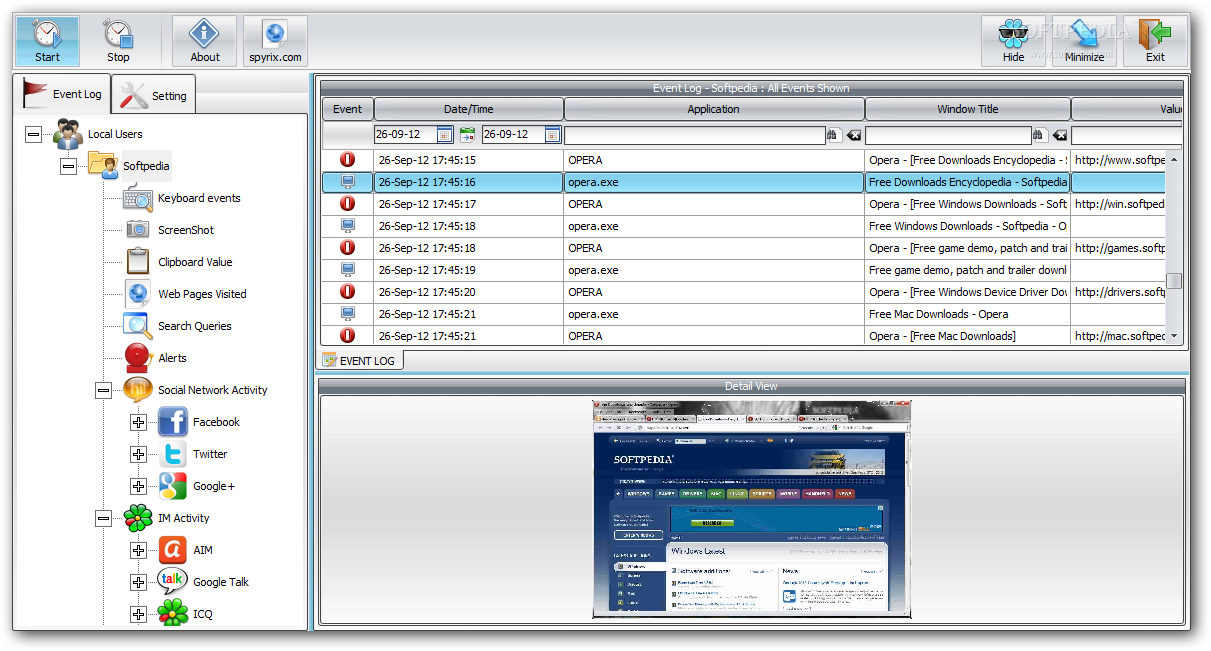

When asked how often they restricted internet or app access, 46% of parents of older teens told Pew Research that they “ limit how long or when their teen can go online.” And 63% noted that they have “digitally grounded” their teen at least once. Some parents may feel it’s best to limit which devices their teens can use or only allow access when they reach a certain age.
#Teen pc monitoring software install#
Lohmann notes that teens can set up “smoke screens” or install apps designed to hide objectionable behaviors from parents. The breakneck pace of technology also can put savvy teens one step ahead of monitoring apps. “Parents can micromanage their child’s accounts and internet usage, but that may set up an environment of resistance and distrust,” Lohmann says. Teens generally can find a way to access the content they want, and the more pressure parents put on them, the more likely they are to try and hide their behavior. “Many teens are more tech-savvy than their parents,” says Raychelle Lohmann, a counselor focused on teen behavior and cyber habits, and author of “The Bullying Workbook for Teens.” Some of the tools at teens’ disposal, which parents may not fully grasp, are “online privacy settings, disabling cookies clearing browsing history,” Lohmann says. When surveyed parents actively and judiciously monitored browsing behavior and put stringent restrictions in place, teens were more likely to “ engage in risky online behavior.” Teens know the loopholes Mesch asked parents to try three different strategies for monitoring browsing habits: supervision, guidance and non-intervention. His study found this lack of freedom can drive teens to hide risky behaviors.ĭr. Gustavo Mesch, dean of social sciences at the University of Haifa and a specialist in teen interactions with the internet, suggests that parents who tightly monitor their children in an attempt to minimize unsafe online behavior may actually achieve the opposite effect.

Monitoring a teen’s online life may give parents peace of mind, but it is by no means a silver bullet. According to the Pew Research Center, 39% of surveyed parents had used “ parental controls or other technological tools” to block sites and apps. Using apps to monitor a teenager’s online activity is not an uncommon parenting strategy. The lesson? Media literacy is as important for parents as it is for teens. Common Sense Media flags Kik, WhatsApp and Tumblr as other potentially dangerous online spaces, because they allow teens to hide conversations and talk to anonymous strangers in an unsecured environment.


Service provider or third-party tracking programs and apps - like PhoneSherriff or WebWatcher - allow parents to monitor and catalog what teens are viewing.Īnd while Facebook and Twitter are everywhere, it’s important that parents have some familiarity with the other apps teens are using. Even if parents take steps to limit their child’s browsing capabilities, inappropriate apps and websites can still be accessed with a friend.īut understanding the nuances and potential dangers of popular apps and platforms can help build a sensible monitoring strategy. The potential for unmonitored and unlimited online interactions can make it difficult for parents to screen the content and sites their teens view. Luckily, as internet use has become more prevalent in teens’ everyday lives, researchers have identified new ways to keep teenagers safe while preserving room to still explore and learn. Many feel it’s important to monitor or limit their child’s internet behavior - from browsing to social media - until they reach a certain level of maturity or media literacy. Last year, the Pew Research Center found that 61% of parents “ have checked which websites their teen has visited.” Between giving their teens privacy and freedom to express themselves, while also ensuring protection from the potential dangers of the internet, parents face a delicate balance. With a few tools, parents can ensure their teen’s digital behavior is built on mutual trust.


 0 kommentar(er)
0 kommentar(er)
